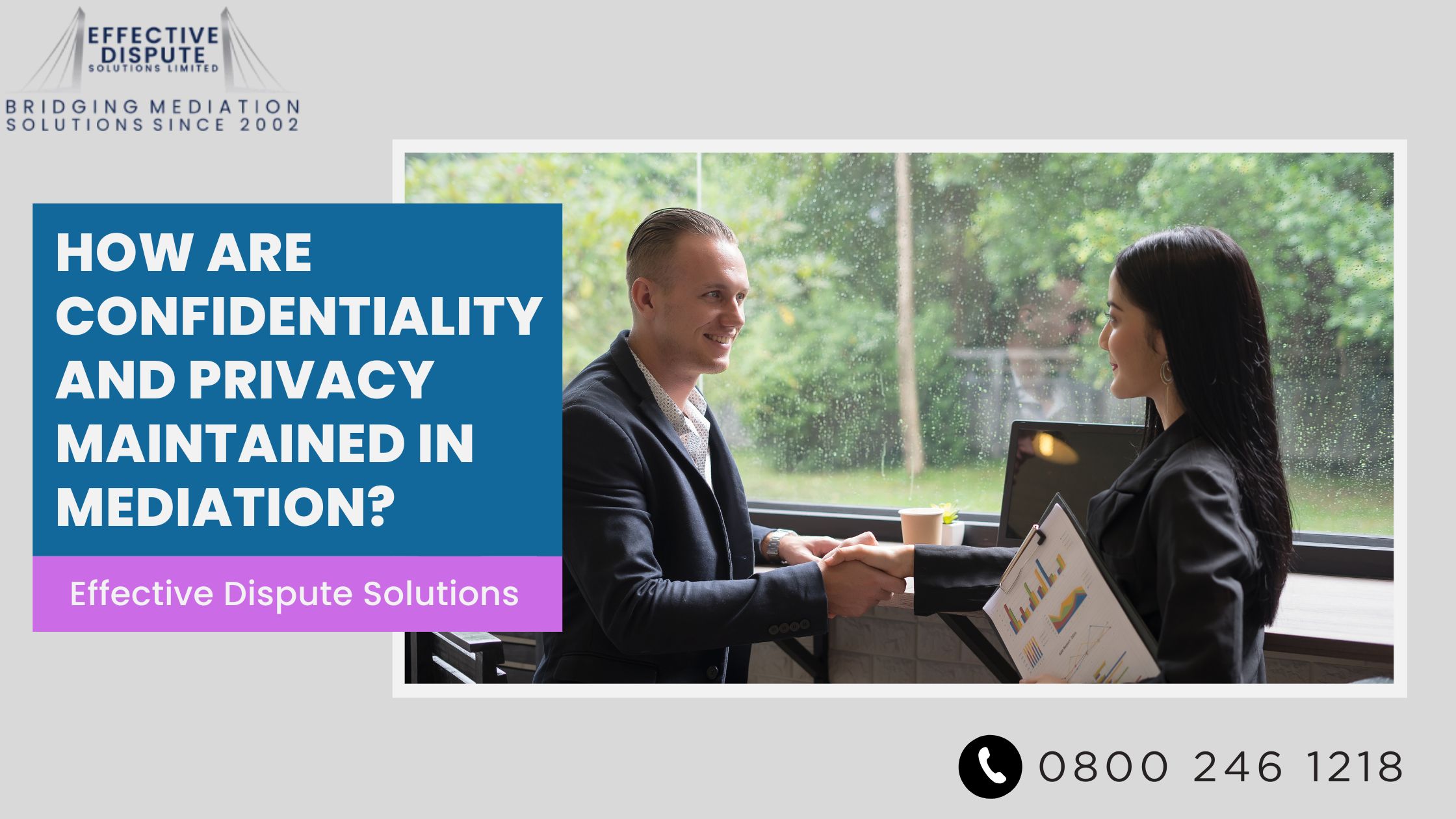When you’re dealing with a dispute, stress levels go up. Tensions rise. Everyone wants a solution, but not everyone wants it played out in public. That’s where mediation steps in. It’s faster, less formal, and more private. You don’t have to give up months of your life just to sort things out.
When people hear the word “mediation,” they often ask how private it really is. What’s shared? What’s kept under wraps? Who hears what?
Understanding confidentiality in mediation is key. It helps everyone involved feel safe enough to speak honestly and openly. That’s when real progress happens.
Let’s break it down.
What Does Confidentiality in Mediation Really Mean
Confidentiality means what’s said during mediation stays in mediation. The goal is to create a space where both sides can speak freely. No one wants their private issues shared outside the room. And rightly so.
This isn’t just a polite agreement. It’s a structured part of the process. Most mediators ask all participants to sign a confidentiality clause before things even begin. This clause is more than just paperwork. It’s a written promise that whatever gets said won’t be repeated elsewhere.
This gives everyone the confidence to be open. And when people are open, mediation works better.
Why Privacy Matters So Much
Privacy in mediation is just as important as confidentiality. Privacy refers to who’s allowed in the room. Mediation sessions are closed off from the public. No observers. No reporters. No records published later.
Whether you’re involved in a business disagreement, a team dispute at work, or a boundary mediation over property lines, you can be sure the details won’t be broadcasted.
That peace of mind helps keep emotions in check. It allows people to focus on solutions, not on defending their reputations.
Different Settings, Same Privacy Rules
Let’s look at how this works in different types of mediation.
1. Civil and Commercial Mediation
These sessions are private and legally binding. The confidentiality in mediation here is strong and formal. What you agree on becomes enforceable in court if needed. Everything stays between the participants, the solicitors, and the mediator. If one side breaches the confidentiality agreement, there can be legal consequences.
2. Workplace Mediation
These are not legally binding. But they’re based on trust and good faith. Even without court enforcement, participants are still expected to honour the confidentiality agreement. It’s a moral and professional promise. And it usually works because both sides want to move forward without dragging things into a public fight.
3. Boundary Disputes
These cases are often sensitive. They involve neighbours, land rights, and long-standing tensions. Here, privacy is everything. People don’t want others to know their private business. With mediation, you keep the dispute out of public view. This helps maintain long-term relationships. And keeps property values from being affected by public conflict.
How Confidentiality is Built In
Confidentiality doesn’t happen by accident. It’s baked into every step of the mediation process.
- Signed Agreements: Everyone signs a confidentiality clause before starting.
- Private Meetings: No one enters without permission from both parties.
- No Recording: Audio and video recording is never allowed.
- Separate Discussions: Mediators may speak with each party alone. What’s said stays private unless you give permission to share it.
- Written Agreements: Only the final outcome is written down and shared. The actual conversations stay off the record.
This level of privacy keeps everyone safe. It reduces the fear of backlash. It also makes it easier to admit mistakes, suggest compromises, or even apologise.
Legal Framework for Mediation Privacy
The legal framework for mediation privacy supports confidentiality in most professional settings. In the UK, mediation is recognised as a voluntary, confidential, and without-prejudice process. That means you can’t use what’s said during mediation as evidence in court later on.
It’s why people feel secure enough to speak freely. You can say something during mediation without worrying that it will be used against you if things don’t work out.
Solicitors also respect this framework. They know what can and can’t be shared. And they help their clients stick to the rules.
What if Someone Breaks Confidentiality
It doesn’t happen often. But when it does, there are consequences.
In civil and commercial mediation, breaking confidentiality could lead to legal action. Courts can step in if someone shares details that were meant to be private. You can claim damages. Or even challenge the mediation outcome if trust was broken.
In workplace mediation, it’s different. Since they’re not legally binding, the consequences are more about reputation and relationships. But even here, breaking a confidentiality clause could damage your standing within a company or organisation.
In both cases, the risk usually keeps people in line.
Who Can Access the Information
The short answer is: very few people. Here’s how it usually works:
- Mediators: They know everything, but won’t share without your OK.
- Parties: Each side only knows what’s said in joint sessions.
- Solicitors: They see your documents and help you understand your options.
- Experts (if involved): They only get the details they need to offer advice.
There’s no judge. No jury. No crowd. It’s a tight, secure circle of trust.
One Clear Mention of Mediations
If you’re exploring your options for mediations, it helps to know just how private and secure the process really is. You’re not airing your dirty laundry. You’re solving a problem discreetly and effectively.
Why Confidentiality Makes Mediation Work
When people feel safe, they open up. They admit things. They take responsibility. They explore compromise. None of that happens when people feel exposed.
That’s why confidentiality in mediation isn’t just a feature. It’s a foundation. It builds trust between the mediator and both parties. It helps people focus on solutions. And it encourages them to be real.
Conclusion
In the end, that’s what makes mediation better than court. It’s faster. It’s cheaper. It keeps you out of the spotlight. And you still get a result that works. If you’re facing a dispute, don’t waste time dragging it through court. Get it sorted privately. Quickly. And with complete confidentiality.
At Effective Dispute Solutions Ltd, we can mediate for you within 14 days of contact. We offer sessions in person or online via Zoom with complete privacy in mediation.
No noise. No delays. Just solutions you can live with.


